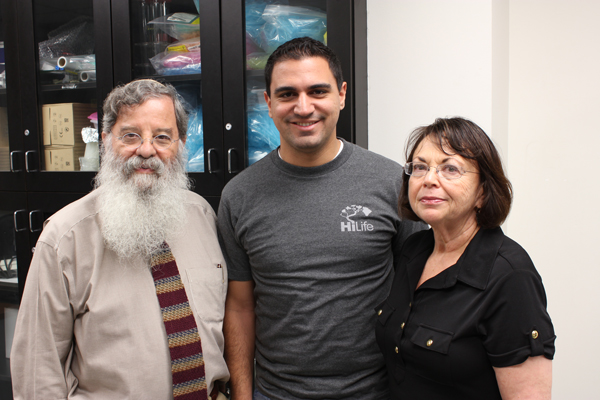Ostrow Orthodontics Graduate Wins American Association of Orthodontists Award

Posted
14 Jun 12
George Abichaker ’05 DDS ’09 Ortho ’12 was awarded first place for the Charley Schultz Resident Scholar Award at the American Association of Orthodontists Annual Session on May 2, 2012.
The award, recognizing clinical or basic science research by an advanced orthodontics resident, comes at the end of Abichaker’s 11-year span as a USC student and is his eighth award for outstanding scientific investigation.
Abichaker, who graduated from USC with a bachelor’s in business administration and a minor in natural sciences, began his research career and his relationship with the Ostrow School of Dentistry during his junior year. That fall, he began work in the developmental genetics lab of Professors Michael Melnick and Tina Jaskoll after reading about their work online.
Since then, as Abichaker completed the USC doctor of dental surgery program followed by a residency in orthodontics and master’s in craniofacial biology, he remained at work in the lab, his responsibilities growing from day-to-day laboratory tasks to co-authoring eight published scientific articles. Besides his many research awards from both the School and professional organizations, he has also presented his work at several national and international professional meetings.
The AAO honored Abichaker with the Schultz Award for his work on cytomegalovirus and its affects on embryonic tooth development, the project that comprised his master’s thesis. He said his findings showed that CMV infection can negatively affect the development of teeth in a growing embryo and that the damage done by the virus depended upon the embryo’s stage of development and the duration of the infection.
Abichaker, who will be entering private practice in orthodontics, said his research experiences have been “an escape from everyday clinical dentistry” and have informed his clinical perspective.
“It’s helped me look at research more objectively,” he said. “Being able to understand research helps in healthcare. There are a lot of new advances and new ideas to be on top of.”
Abichaker also shared advice for fellow students looking to get involved in research.
“Start early; find out which faculty are doing research and look up their work on Pubmed and Google Scholar,” he said. “And be committed. You need to spend many hours each week doing research if you want to achieve something with it.”